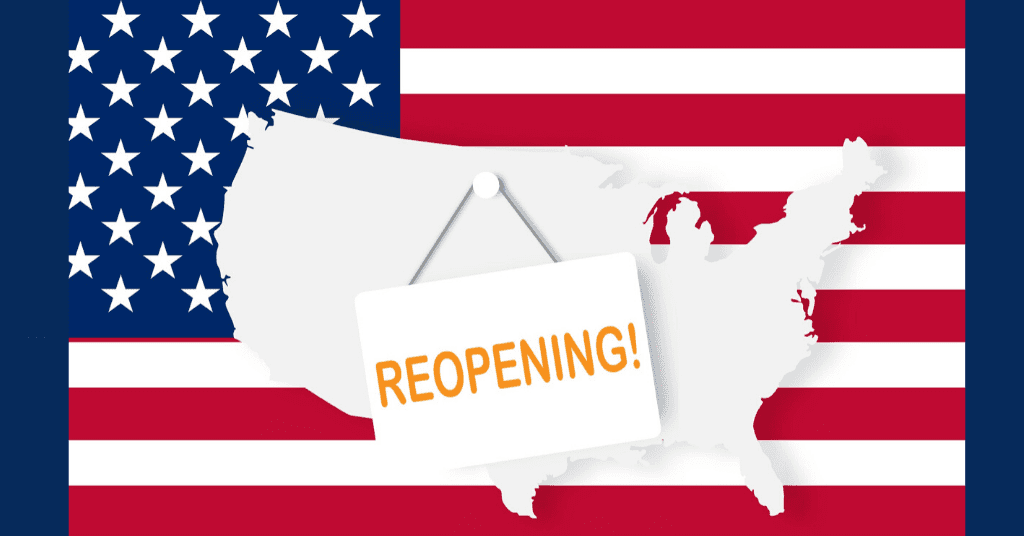As the curve of new coronavirus cases in California has effectively flattened, the focus has shifted to how our state can position itself for a return to work. On May 4th and 7th, Governor Newsom outlined measures that businesses must take to comply with reopening in accordance with Stage 2 of California’s 4-part resilience plan. But not all businesses are treated the same under the plan. Starting May 8th, 2020, California has permitted curbside and delivery-along with logistics, warehouse, and manufacturing operations supporting the retail sector-to reopen. Some businesses that have reopened with modifications include bookstores, clothing stores, florists and sporting good stores. Businesses must be aware that although the curve has flattened somewhat, the risk of COVID-19 for Californians is still real and continues to be fatal.
As part of the gradual reopening contemplated by the State, the following businesses are set to reopen in a later phase of Stage 2:
- Destination retail, including shopping malls and swap meets;
- Personal services, limited to: car washes, pet grooming, tanning facilities, and landscaping/gardening;
- Office-based businesses (although telework remains strongly encouraged)
- Dine-in restaurants (other facility amenities, like bars or gaming areas, are not permitted);
- Schools and childcare facilities; and
- Outdoor museums and open gallery spaces.
In the absence of more specific directives from Governor Newsom, the guidelines surrounding the opening of these businesses are advisory. The guidance for each industry contains many of the same elements (such as social distancing), but there are a handful of industry-specific practices. For instance, for office-based businesses, the employer should attempt to have employees work remotely. If people cannot work remotely, the office environment should be modified to make the environment safer for employers.
Every business should review the industry-specific guideline issued by Governor Newsom and prepare and implement a specific return to work plan. Employers should demonstrate to customers and employees that the company has mitigated the risk of infection and are ready for business.
Before reopening your facilities, you must:
- Perform a detailed risk assessment and implement a site-specific protection plan;
- Train employees on how to limit the spread of COVID-19, including how to screen themselves for symptoms and stay home if they have them;
- Implement individual control measures and screenings; and
- Implement physical distancing guidelines.
It is crucial that employees needing to self-isolate because of COVID-19 are encouraged to do so. Companies must have sick leave policies that are compliant with state law and local ordinances as well as the emergency paid sick leave requirements of the Families First Coronavirus Response Act (FFCRA) where applicable. Certain employers in Los Angeles, unincorporated areas of Los Angeles County, San Francisco, and San Jose, are also required to provide supplemental paid sick leave for COVID-19-related reasons if they are not covered by the FFCRA.
The Governor also announced on May 4th that while the state is moving into Stage 2 together, counties can move quicker through Stage 2 if the attest they meet the state’s readiness criteria. Each county must create and submit a readiness plan which the state will make publicly available.
Contact tracing enables the state to suppress the spread of the virus to avoid outbreaks and to maintain the state’s health care capacity. To attain these goals, Governor Newsom announced a partnership with the University of California, San Francisco and University of California, Los Angeles to immediately train workers for a landmark contact tracing program that will help contain the ongoing COVID-19 pandemic while the state looks to further modify the stay at home order.
It is welcome news that California is taking its first major steps in reopening its economy by loosening restrictions on certain businesses. Furthermore, regions with fewer COVID-19 cases and deaths will also be permitted to open more businesses sooner if they meet a laundry list of requirements, including the ability to perform certain tests daily, availability for housing for 15% homeless individuals, and a certain amount of skilled nursing facilities, etc. In the end, this is a balancing act by the state to reinvigorate the economy while keeping a tight rein on the spread of the virus. With businesses opening up this week, employers need to be knowledgeable about their rights and responsibilities. If you are an employer, your primary responsibility is promoting the well-being of your employees and customers.
In these uncertain times, employers are well-advised to obtain the counsel of an experienced attorney to assist in understanding and implementing best practices for reopening businesses and to ensure compliance with county and city public health departments and state and local government requirements. For a free consultation, contact Danielle G. Eanet of Eanet, P.C. at (310) 997-4185 or by email at Danielle@eanetpc.com.


